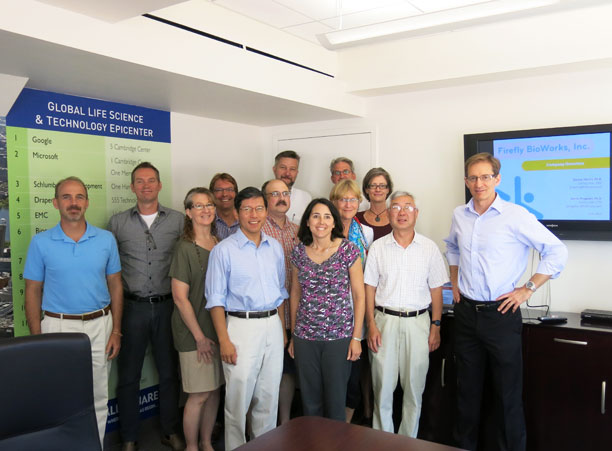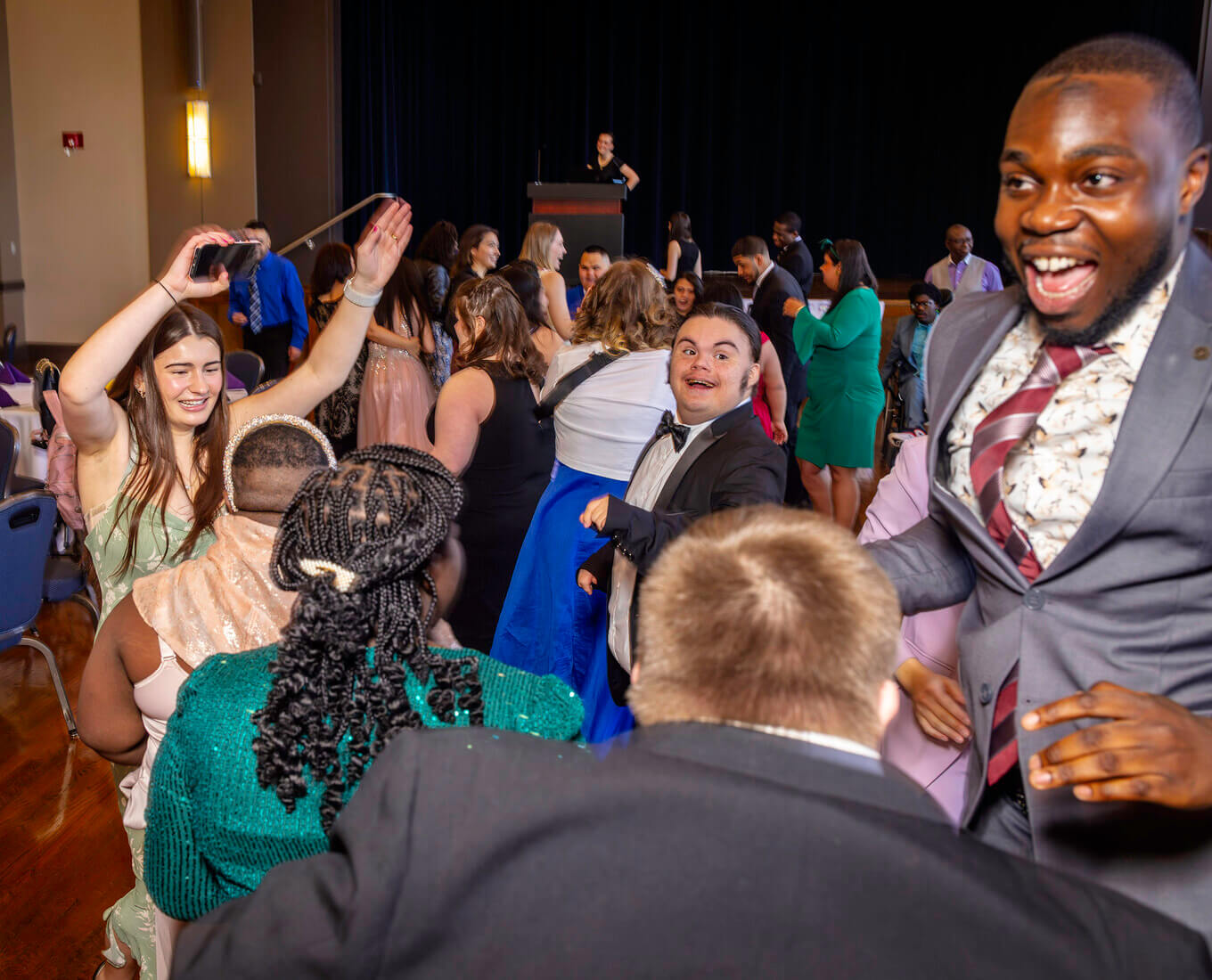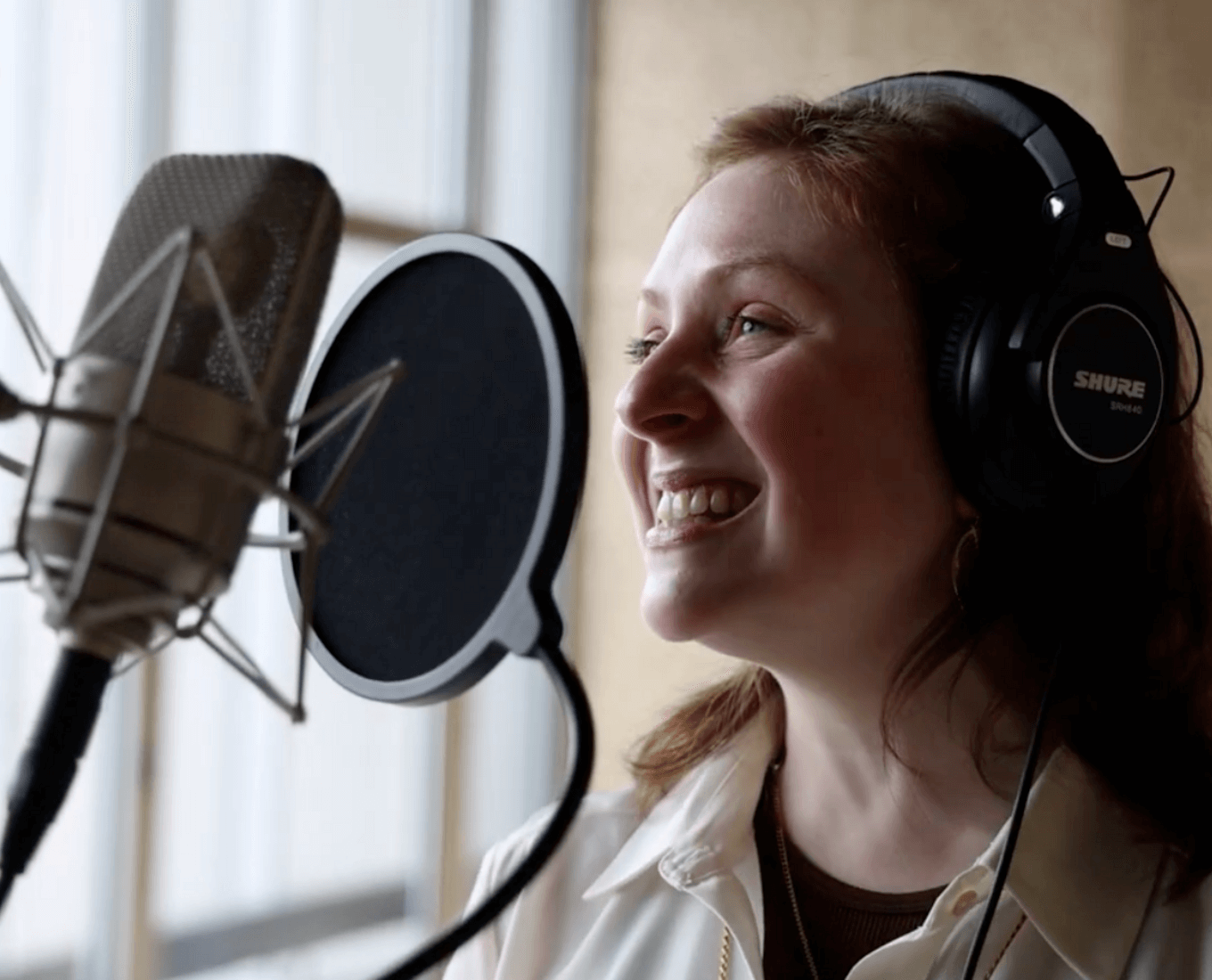For the second year in a row, Holy Cross faculty and staff got a crash course in entrepreneurship.
From Aug. 12 to 15, David Chu, director of the Ciocca Office of Entrepreneurial Studies, organized a multi-day outing to Cambridge, Mass., as part of the second annual Cambridge Innovation Project.
Participants toured the Harvard Innovation Lab and the Cambridge Innovation Center. They also made site visits to two area startups: Boundless Learning, Inc., which provides online educational content for higher education, and Firefly BioWorks, which provides technology that allows for rapid miRNA detection in a large number of samples using standard laboratory equipment.
Participants in this year’s project included Michelle Sterk Barrett, director of the Donelan Office of Community-Based Learning; Leon Claessens, associate professor of biology; Margaret Freije, interim vice president for academic affairs and dean of the College; Cassie Gevry, program coordinator of COES and the prebusiness program; Helene Horan, associate director of COES; Matthew Koss, professor of physics; Patricia Kramer, Charles A. Dana Faculty Fellow and associate professor of psychology; Lynn Kremer, professor of theatre; Jennie Germann Molz, associate professor of sociology; Edward O’Donnell, associate professor of history; and De-Ping Yang, professor of physics.
The professors were particularly inspired by Davide Marini, co-founder and CEO of Firefly Bioworks, who talked about how his path growing up in Italy, to working for J.P. Morgan, to earning a Ph.D. at MIT in mechanical engineering — all of which contributed to his desire to become an entrepreneur. The passion and excitement that Marini articulated was compelling and the Holy Cross professors found themselves commenting afterward how much of what Marini talked about — the importance of leading a good life, the necessity of blending your "work self" and "home self," the excitement that comes with exploring and learning — sounded, in many ways, very much like what students and professors at Holy Cross strive to achieve.
“The goal of this experience is for us to understand how ideas become marketable realities via the entrepreneurial process, and to think innovatively about our own work at Holy Cross,” said Chu.
He hopes faculty see his office as a small engine for entrepreneurial ideas. As facilitator, he can refer professors with similar ideas and interests to one another or to alumni. Not only would this encourage collaboration among departments and alumni, it could also help introduce new ideas to the marketplace.
Participants in last year's program successfully found ways to apply lessons they learned to their work at Holy Cross.
Nancy Andrews, associate professor of classics, created a course assignment that was inspired by her experience at the Cambridge Innovation Project for her Classical Mythology class. Chuck Anderton, professor of economics, created a course titled Entrepreneurship, Growth, and the World Economy. Kolleen Rask, professor of economics, brought Marcela Escobari, a speaker at last year’s program and executive director of the Center for International Development at Harvard University, to speak to her Economics of Development class and to students in the Montserrat Global Society cluster.
A lot of learning also seemed to take place among this year's participants.
“I learned that the gap between theatre folks and entrepreneurs is smaller than I had imagined. I plan to teach my actors that the skills we learn in theatre are useful in other creative endeavors and that they should apply these entrepreneurial skills to their marketing of themselves and their work,” said Kremer.
Sterk Barrett, who connects classroom learning objectives with civic engagement, said, “I found the Cambridge Innovation Project to be helpful in deepening my understanding of potential career paths in entrepreneurship — especially social entrepreneurship. This will enable me to more effectively mentor students who are considering how to address social problems through entrepreneurial activities.”
One thing a few professors noticed was that many entrepreneurs they met did not have degrees in business. Which raises the question: What qualities do these entrepreneurs have to fuel their efforts?
“As I listened to some of the CEOs describe their passions and challenges, I quickly realized that a liberal arts degree is excellent preparation for a career in business," says Germann Molz. "The kinds of things students learn at a liberal arts college — the ability to tell stories, communicate with people, bring a different perspective to the table, challenge assumptions, and telescope from the big picture to a specific problem and back again — are all essential skills in business. And quite frankly, the business world would benefit immensely from the skills and sensibilities Holy Cross students have to offer.”
Related Information:
Holy Cross Professors Introduce Entrepreneurship Lessons to Classroom
Cambridge Innovation Program inspires faculty



